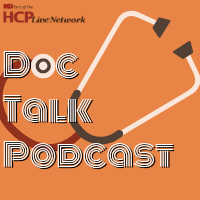Video
Recommendations for Using LAIs During COVID-19
Transcript: Dawn Velligan, PhD: The North Carolina Psychiatric Association recently put out guidelines about what to do about LAIs [long-acting injectables] and COVID-19 [coronavirus disease 2019]. I've had this question from many of our providers, “Should I just switch everybody to oral so they don't have to come in?” Switching people to orals is not going to keep them from having contact with health care providers. In fact, doing that is likely to increase their risk because they're not used to taking oral medications. They don't have a habit of taking their medications. They may not be used to taking oral medications. It puts them at risk for hospitalization if you're suddenly going to take them off of an injectable medication. It's very important to be safe about how you do it. Make sure all the guidelines are followed and you have masks and all the things that you need to do this safely. But it’s very important for people to get their injections.
Then you know that for the next month or the next 2 months or the next 3 months that they're covered on their antipsychotic medication. It’s important because in COVID-19, people may not want to go to the pharmacy and pick it up. Mail delivery has been slow. They may not get their medicine in time if it's mail delivered, and then they have a gap and they're at risk for relapse. It’s important to consider the whole picture and not to jump to conclusions about we shouldn’t see people and put them on long-acting injection. You have to weigh the risks and benefits. The risks to me always seem greater if people with psychotic disorders like schizophrenia are not covered with medication.
Christoph Correll, MD: Long-acting injectable antipsychotics have various advantages. But another one is that there is less clinical contact needed, and you still can be certain that patients are covered, particularly in these very difficult times of COVID-19. In this pandemic and the interruption to access of care, we need video assessments, but also patients being quarantined and not being able to go to providers, pharmacies, or get their oral medication. Long-acting injectable treatments can be a very valuable tool to assure that more patients with schizophrenia get the medication that they need. Even if there is a gap, the gap is not 7 days after the oral treatment is gone, and the blood level is zero. It takes weeks for that patient to go back after the quarantine or after an interruption of care and get their injection without too many disruptions and with a low risk of relapse.
John M. Kane, MD: The COVID-19 pandemic has underscored some issues. In my hospital and others in New York, we have been very concerned about people staying at home, so if you have been receiving a long-acting formulations, you don’t have to go to the pharmacy to get your prescription. You can come to the clinic infrequently, whether it’s once a month, or once every 2 months, or 3 months. That can enable you to be safer.
We’ve been recommending for our patients who are being discharged from the hospital now that clinicians consider using a long-acting medicine, so the patient doesn’t have to come back to the hospital right away, and we know that they’re getting their medicine. This is a time that makes everybody vulnerable to isolation, loneliness, to many issues, whether it’s unemployment, family disruption, even loss and grief.
We’re much more comfortable if we know that someone is actually getting the benefit of the medicine. This has underscored the potential value of long-acting formulations. I know some people may say, “Yes, but doesn’t it mean that someone has to go to a clinic and get an injection?” Yes, that’s true, but that can be done relatively infrequently. As I said, once a month or every 2 or 3 months, that can make it easier. We’ve kept our injection clinic open in the midst of the pandemic. Everyone is taking precautions, but we think it’s worked out quite well.
Transcript Edited for Clarity





